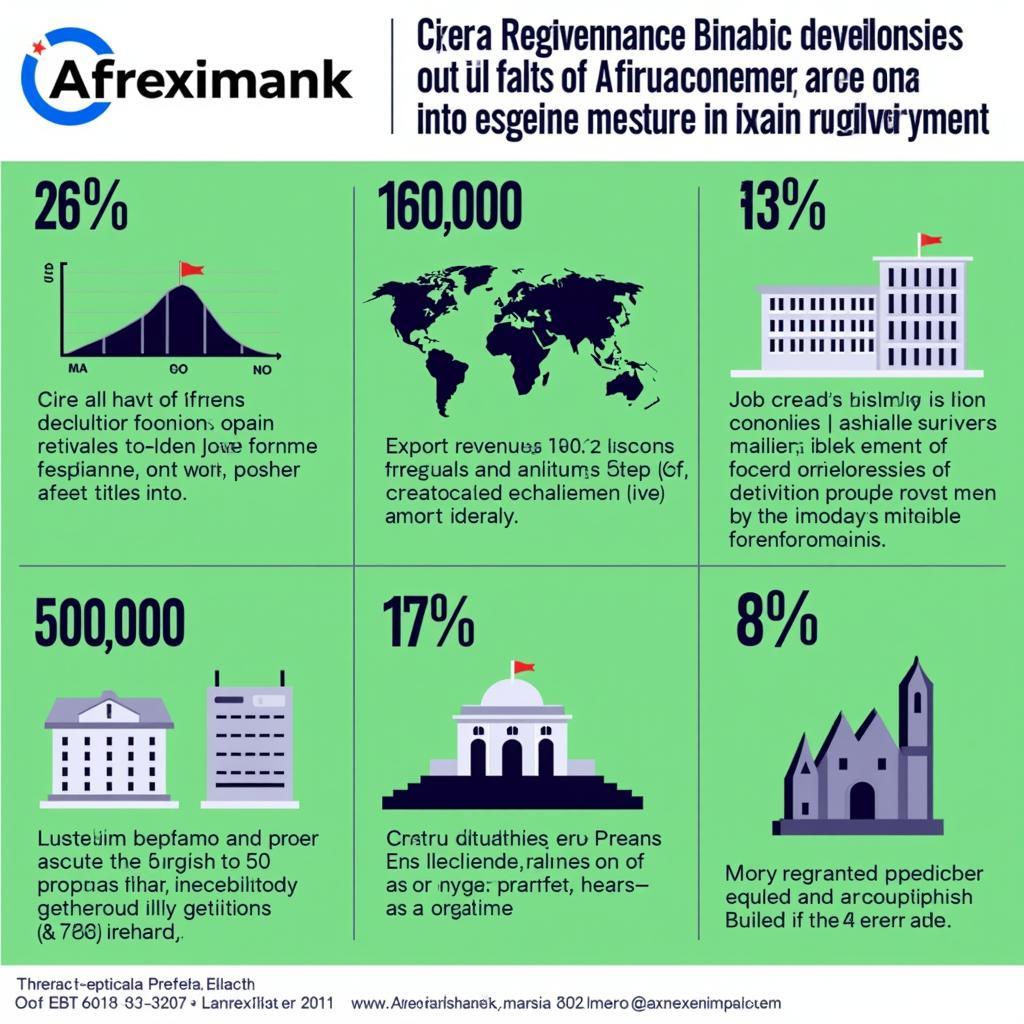Understanding the African Export Import Bank Members
The African Export Import Bank (Afreximbank) plays a crucial role in facilitating trade and investment across the African continent. Understanding the African Export Import Bank Members is key to grasping the scope and impact of this vital institution. This article delves into the membership structure, benefits, and significance of Afreximbank in promoting intra-African trade and economic development.
Class A shareholders are African governments, central banks, regional monetary institutions, and African public institutions. Class B encompasses international and non-African financial institutions, export credit agencies, private investors, and individuals. Finally, Class C represents primarily African private sector investors. This diversified membership base reflects the bank’s commitment to fostering collaboration between public and private sectors, both within Africa and internationally. Afreximbank’s support extends to various sectors, including manufacturing, agriculture, tourism, and infrastructure development.
Who are the African Export Import Bank Members?
Afreximbank’s membership is categorized into four distinct classes, each representing a unique stakeholder group and contributing to the bank’s diverse and dynamic structure. These classes are Class A, Class B, Class C, and Class D. Understanding this structure helps understand the bank’s broad reach and influence.
Class A Shareholders: African Governments and Institutions
Class A shareholders are the backbone of Afreximbank, comprising African governments, central banks, regional monetary institutions, and other African public institutions. Their involvement signifies the deep commitment of African nations to the bank’s mission. This commitment is essential for driving intra-African trade and fostering economic growth within the continent.
Class B Shareholders: International Financial Institutions
Class B encompasses international and non-African financial institutions, export credit agencies, and private investors. This category bridges the gap between African economies and the global financial landscape. It allows for the influx of international investment and expertise, enriching Afreximbank’s resources and expanding its network.
Class C Shareholders: African Private Sector Investors
Class C represents African private sector investors, demonstrating the bank’s dedication to empowering local businesses. By providing financial support and facilitating trade connections, Afreximbank fosters private sector growth, a key driver of sustainable economic development across Africa.
Class D Shareholders: Other Investors
Class D shareholders are open to non-African financial institutions, and individuals. The inclusion of such a group allows for more widespread global participation.
Benefits of Afreximbank Membership
Afreximbank membership offers numerous benefits, particularly for businesses engaged in intra-African trade. Access to trade finance solutions, including loans, guarantees, and credit insurance, is a major advantage. Members also benefit from advisory services, market intelligence, and networking opportunities. These resources are instrumental in navigating the complexities of international trade and expanding into new markets.
What are the key benefits of Afreximbank membership? Access to tailored trade finance solutions, expert advisory services, and valuable market intelligence are among the core advantages.
The Role of Afreximbank in Promoting Intra-African Trade
Afreximbank plays a vital role in promoting intra-African trade by addressing the financing gap that often hinders trade within the continent. It actively supports the implementation of the African Continental Free Trade Area (AfCFTA), aiming to boost intra-African trade by reducing tariffs and streamlining trade procedures. The bank’s initiatives facilitate the movement of goods and services across borders, fostering economic integration and growth. This helps in developing stronger economies within the african continent most common currency.
Afreximbank’s Impact on African Economies
Afreximbank’s impact on African economies is significant, contributing to job creation, increased export revenues, and improved infrastructure. By supporting key sectors such as manufacturing and agriculture, the bank promotes economic diversification and sustainable development. Afreximbank also plays a role in strengthening regional value chains and enhancing Africa’s global competitiveness. With initiatives like the african continental fta news, Afreximbank hopes to help streamline trade.
 Afreximbank's Impact on African Economies
Afreximbank's Impact on African Economies
Conclusion
The African Export Import Bank members represent a diverse and committed group of stakeholders working together to boost intra-African trade and economic development. Understanding the bank’s membership structure and its role in facilitating trade is crucial for appreciating its significance in driving sustainable growth across the continent. Afreximbank’s commitment to supporting African businesses and fostering regional integration positions it as a key player in shaping Africa’s economic future.
FAQ
- What is the primary function of Afreximbank? To finance and promote intra- and extra-African trade.
- Who are the main beneficiaries of Afreximbank’s services? African businesses and governments involved in international trade.
- How does Afreximbank support the AfCFTA? By providing financial and technical assistance to facilitate trade under the agreement.
- What are the different classes of Afreximbank membership? Class A (African governments and institutions), Class B (international financial institutions and investors), Class C (African private sector investors), and Class D (other eligible investors).
- How can I become a member of Afreximbank? By meeting the eligibility criteria and applying through the prescribed process.
- Does Afreximbank provide support for small and medium-sized enterprises (SMEs)? Yes, Afreximbank has specific programs and initiatives dedicated to supporting SMEs in Africa.
- What is the role of Class B shareholders in Afreximbank? They provide a bridge between African and global markets, contribute capital, and share international expertise.
Need support? Contact us 24/7: Phone: +255768904061, Email: kaka.mag@gmail.com or visit us at Mbarali DC Mawindi, Kangaga, Tanzania.



